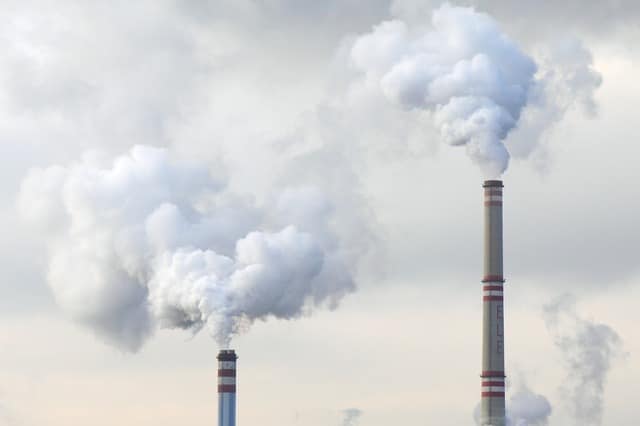Our DeSmog UK epic history series recalls the moment when leaders from around the globe agreed to limit emissions under the Kyoto Protocol.
Exxon boss, Lee Raymond‘s attempt to warn the developing world against signing the Kyoto Protocol – which would threaten his business – appeared to be unsuccessful.
At 4am on the 11th December 1997, the leaders of more than 150 countries meeting in Kyoto, Japan agreed – after two years of negotiations – to binding reductions on carbon emissions.
John Vidal of The Guardian reported: “It was the longest night of the most acrimonious session of the most frenetic set of negotiations in which 160 [sic] governments have ever engaged.”
It seemed that, for a brief moment, the warnings of the world’s climate scientists and appeals of the environment movement had resulted in major international action.
Historic Deal
John Prescott, then-deputy prime minister and the UK representative in Japan, told the assembled reporters: “This historic deal will help curb the problems of climate change … it is good news for the environment and good news for international diplomacy.”
Michael Grubb at the Royal Institute of International Affairs in London said the new Protocol would stand alongside the Treaty of Versailles and the Bretton Woods Agreement in terms of its historical importance.
The treaty would come into effect in February 2005 and legally bind the signatories to reducing emissions to five percent below their 1990 levels.
The industrialised nations recognised that during the last 150 years of capitalism, they had already produced considerably higher levels of pollution and would therefore be the first to be forced to undergo decarbonisation in what was described as “common but differentiated responsibilities”.
Ratify Kyoto
The nations that signed the agreement agreed to increase energy efficiency, protect forests, promote sustainable agriculture, develop renewable energy, end tax exemptions for the fossil fuel industry, reduce the release of carbon dioxide from traffic and industry, and also cut down on methane from waste.
However, as the ink dried, there were concerns that the US would fail to ratify the Protocol and actually bring the emissions limits into force.
Al Gore, the American vice president and the main instigator of the treaty, warned developing countries that if they did not sign, his administration would not even try and get the treaty ratified in the US Senate.
A spokesperson from Greenpeace said at the time: “The agreement will not protect the world from dangerous change on its own, but it is a turning point. It has merely delayed the inevitable move away from coal and oil, but at a very high price.”
The Hottest Year
The Kyoto Protocol would remain the high standard for international agreement and would therefore become the primary target for sceptical attacks.
A few weeks after the 10,000 delegates, industrial lobbyists and environmental activists left the conference, it was confirmed that 1997 had been the hottest year during the 20th century.
Tom Karl, the senior scientist of the National Oceanic and Atmospheric Administration (which released the figures), said: “Are there reasons to be skeptical that greenhouse gases are having an impact? No. There are no reasons to be skeptical.”
President Bill Clinton would use the weather report to urge the US Senate to ratify the Protocol:
“We need a national consensus to do something on global warming.”
“It is significant, and what we need is an understanding that we can grow the economy and still preserve the environment,” he said during a fundraising dinner.
Browne Stands Up
BP’s Lord Browne, who was in favour of government regulation to limit emissions, went on to confront the climate sceptics directly at the World Economic Forum held in Davos a month after Kyoto.
He spoke in favour of the agreement, but William O’Keefe of industry lobby group the Global Climate Coalition quickly slapped him down, arguing that industry must not support the agreement and that, in any case, the US would not ratify the accord.
According to Steve Coll, the author of the award-winning Private Empire: ExxonMobil and American Power: “Browne turned his back on him [O’Keefe]. A London colleague called to say that he had never seen him so angry.”
Browne would go on to make a speech at the British Institute of Energy Economics (BIEE) – of which Nigel Lawson was president. Here, too, he praised Kyoto. Not everyone would agree, however.
DeSmog UK’s next epic history post describes how the BIEE became a beacon of light around which the industries most affected by the new Kyoto Protocol met to discuss strategies about how to approach the international agreement.
Photo: Creative Commons
Subscribe to our newsletter
Stay up to date with DeSmog news and alerts







